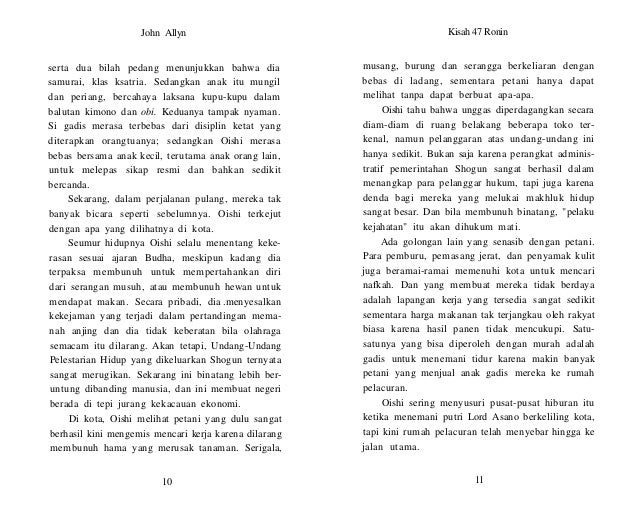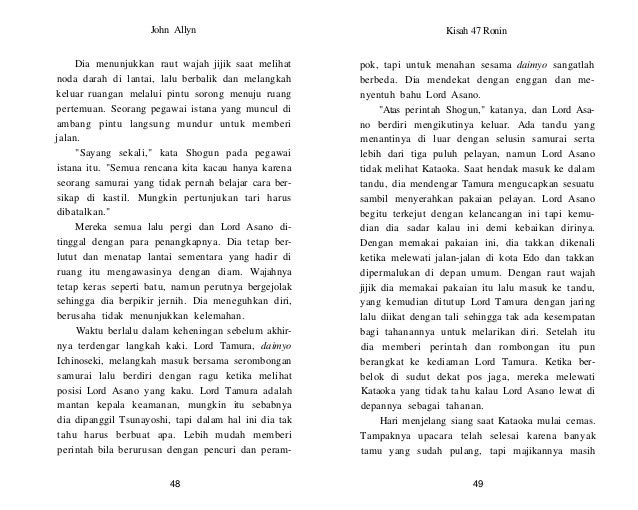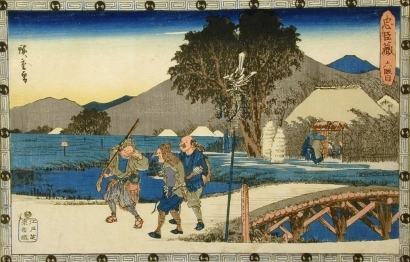

Patrick Sherriff publishes a monthly newsletter highlighting good fiction published in English about Japan. 4 of 100 books I intend to read and review in 2019. An awful lot of blood, sweat and tears were shed just because the young lord couldn’t keep his temper in check when a courtier goaded him by calling his missus a slag. And you don’t have much more by way of stakes to sacrifice than your own life, although 47 Ronin goes 47 steps further, sacrificing the samurai lives to avenge their fallen lord, not to mention sacrificing their 47 families’ well-being.

Sacrificing yourself for others, sacrificing yourself for an ideal.

Oh, and heroism, perfectly mirrored by the villain’s equal and opposite reactions.īut what is heroism? In this story, and perhaps in every story, heroism is sacrifice. A partial inventory is as follows: a wrong that needs righting a corrupt, decadent capital run by an effete hands-off leader, a loyal follower who must become the leader of the righteous rebels (but not revolutionaries) by balancing the need for action with the need for guile. And so I bought this, a slightly clunky 1970 retelling of the classic tale of samurai revenge, repackaged for the latest movie remake of the story, with a new foreword by academic Stephen Turnbull, who points out the historical inaccuracies with the true 18th century assassination.īut the story, however historically inaccurate, works in fundamental ways so that the factual truth or otherwise is beside the point (see also Robin Hood), so much so that I found it instructive to piece together what elements were necessary to make the story tick.

I’m no expert on samurai ‘n’ geisha yarns but I thought I ought to become at least familiar with the 47 Ronin story, as it appears to be the archetype behind much yakuza stories of revenge and that whole Japanese suicide-with-honour thing.


 0 kommentar(er)
0 kommentar(er)
